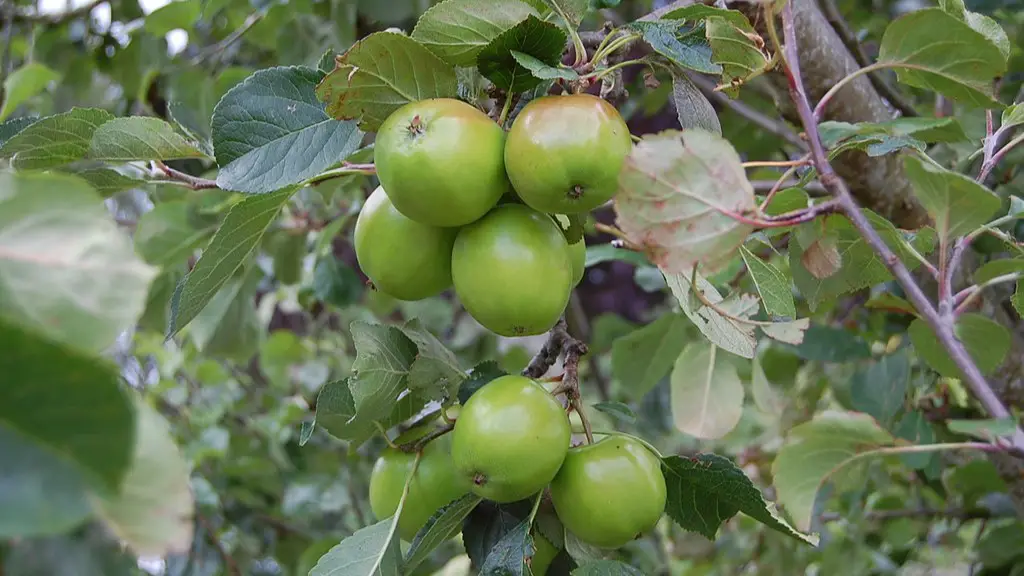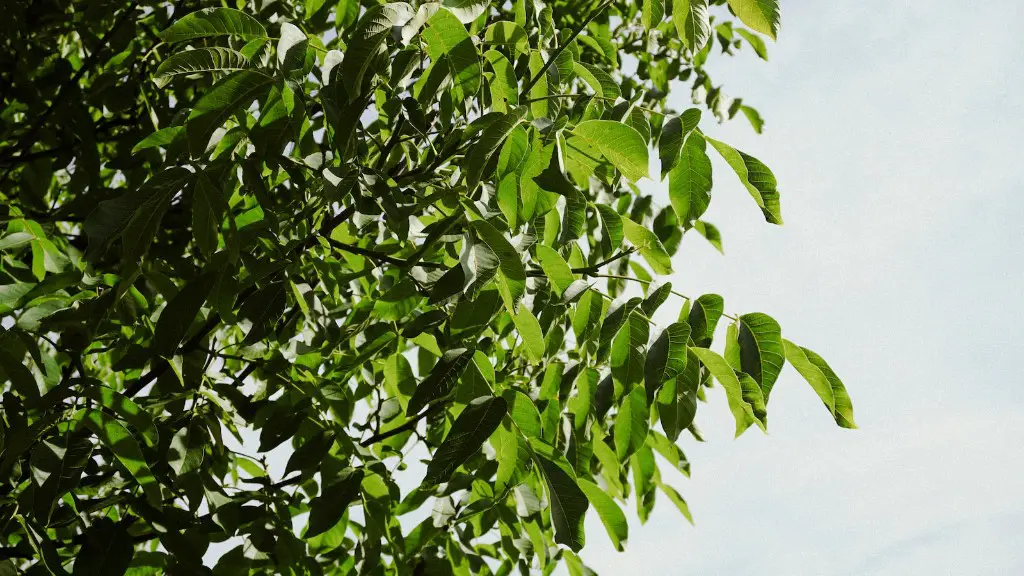It’s a perplexing sight – an apple tree with no apples on it. It’s important to understand why this is occurring so that the situation can be rectified. It is by no means an uncommon phenomenon, and several possible causes can be discerned.
Inadequate Soil
The first and most likely cause of a lack of apples is inadequate soil depletion. Trees require certain minerals and compounds that they cannot obtain on their own, and when these are absent the tree is unable to produce the required amount of fruit. A soil deficiency may be a result of lack of proper nutrition in the soil or from certain types of plant diseases that tend to deplete soil nutrients.
Poor Pruning
Tree growth often requires some kind of pruning to help contain the wild growth that would otherwise occur. Pruning ensures that the tree has a balanced and healthy structure, and also provides for a better fruit yield. Poor or inadequate pruning can lead to an imbalance, resulting in too much foliage but too few fruits.
Lack of Pollination
Pollination is sometimes an overlooked factor that can affect fruit production. Apple trees require bees or other insects to spread pollen to other apple trees in order to effectively produce fruits. If there are no bees present, then the tree won’t be able to achieve the necessary level of pollination.
Damage to the Roots
Apple trees also heavily rely on efficient water flow to the roots. Any kind of damage to the root system can disrupt the flow of water, leading to a reduced yield of fruits. This may be caused by an excessive amount of fertilizer in the soil or other forms of damage.
Inappropriate Conditions
Apple trees require a specific natural environment in order to produce an adequate amount of fruit. If the tree isn’t planted in an area of suitable temperature, humidity, and sunlight, then it cannot thrive, let alone produce fruit. If a tree is weakened due to wrong conditions, it will produce minimal, poor-tasting fruits.
Pest Infestations
Another cause of a lack of apples on an apple tree is pest infestations. There are numerous insects, birds, and rodents that feed on apple trees and their fruits, and if the tree is exposed to too much of these problems, it won’t be able to produce a large harvest of fruits.
Improper Irrigation
Finally, apple trees need an adequate amount of water, but too much or too little water can prevent it from producing enough fruits. A water shortage will lead to a lack of nutrition, while over-watering will create a sort of ‘waterlogging’ situation in which the tree won’t be able to obtain oxygen and other vital nutrients.
Overcropping
Minimal fruit production can also be a result of what is known as “overcropping”. This occurs when a tree produces too many apples in one season and exhausts itself, leaving it unable to produce any apples the following season. Thus, it is important to be mindful when pruning and harvesting your apples.
Disease Infestations
In some cases, trees may be affected by diseases that can drastically reduce their ability to yield good fruit. For example, apple scab is a fungal disease that can cause apples to rot before they can fully ripen. Other pests and diseases, such as aphids, mites, and bacteria, can damage trees and reduce the amount of apples available.
Incorrect Planting
Incorrect planting can also be a major contributing factor. Apples trees need to be planted in a manner that allows for the proper drainage of the water and the necessary airflow for growth and pollination. If a tree is planted too close to other trees, it won’t be able to obtain the necessary resources, leading to minimal fruit production.
Lack of Proper Fertilization
Fertilization is an important factor that affects the growth and productivity of a tree. Without an adequate amount of fertilizer, a tree can become weak and unable to sustain itself. Fertilization ensures that the tree has all the necessary resources to grow healthy, producing a good harvest of apples.


